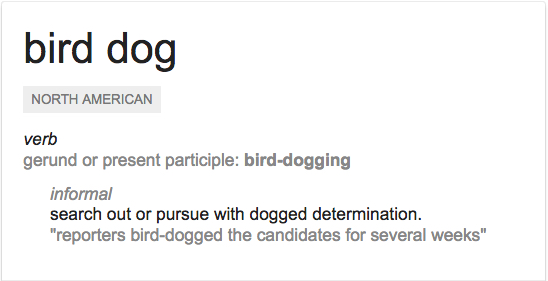When a completely new idea comes around, predictably there is misunderstanding and apprehension. The more unique and original the idea, the greater is the reluctance to see it for what it is and recognize it’s potential. Call it the shock of the new.
Baffling as I find it — since I’m intimately familiar with the candidate contracts, including their legal implications and their implementation in an electoral setting — it’s come to my attention that some of those who would most benefit from and are least threatened by my game-changing proposal, have been beset with a bad case of the jitters, mostly knee-jerk fear-and-trembling associated with anything “legal” or related to “signing a contract”.
Of course and unfortunately, I refer to the populist/progressive candidates for whom the strategy was specifically designed — the good folks for whom it is the sole purpose of the strategy to faithfully serve, serve by getting them elected to office, empowered to act on and implement the enlightened progressive agenda now totally ignored by our current legislators, and be widely acclaimed as the saviors of our democracy.
This particular article is meant to clear any misconceptions and dispel related fears about the candidate contract strategy. I will be addressing the populist-progressive candidates themselves — the only ones worthy of the strategy, the only ones worthy in my opinion of holding public office.
So . . .
What kind of candidate would sign the candidate contract?
A candidate who wants to win the election in November 2018!
The solutions for every single one of the issues offered on the contract templates are supported by no less than 62% of American citizens. Most are in the high 70% range, some up in the 80% range. These are the things people want done. They’re sick of the excuses and delays. If they’re convinced a candidate can deliver on any of those items, they most certainly will vote for that candidate.
What kind of candidate would not sign this contract?
Establishment candidates — I call them centrist/neoliberal candidates — can’t and won’t sign the contract. While they don’t embrace the populist agenda of the contract, that’s not the main reason. They’d sign away their own grandmothers if they thought it would help their political careers. The main reason is that if they sign the contract, they will alienate their campaign donors — corporations, banks, Wall Street, the ruling elite — and lose the support of their major parties. Those two things have assured victory in the past. Why mess with a good thing? They’ll play it safe . . . and hopefully be sorry.
Having written off the establishment types who are in the pockets of the ruling elite, the rest of this goes out to you non-establishment, non-centrist, non-neoliberal candidates — you folks on the fringes, you guys who aren’t getting invited to the party, because you want to run a good, solid, transparent campaign, then go to Washington DC to represent the needs and desires of everyday Americans, not be lapdogs for the rich and powerful.
There are two extremely important things, right at the outset, to keep in mind here in appreciating why you as a candidate should sign this contract.
First, your strict legal obligations ONLY embrace what’s in the contract. Yes, the contract delineates your activities in relation to those issues listed. But in the entire range of other activities and legislation that you will deal with in office, you as a legislator will exercise your own discretion and judgment.
We of course assume that true to the intent and spirit of the contract, you will always defer to the majority wishes of your constituents, always doing your best to determine what your constituents want you to do, as their elected representative.
Second, you will determine what goes into the contract. We’re offering a valuable and powerful template, listing those causes which have the overwhelming popular approval of voters across the nation. But circumstances and conditions vary from district to district. If a particular issue is not relevant to your district, leave it off. An effective campaign is built around three to eight decisive wedge issues. You really only need one, but having a few more clearly adds punching power to your campaign. You will tailor this contract to the specific conditions and requirements of your campaign and your local district. Focus on those issues which are popular with your constituents but opposed in fact or by the voting record of your opponent. You want your contract to be about the stands on issues that set you apart, make you look good vis-a-vis your sellout opponent, that will get you elected — not make you or your campaign staff feel good, or your family and friends proud of you. Stay focused. Make this contract work for you. Having said that, we assume that you are a true progressive — not a faux progressive or a lip-service liberal — and therefore your final candidate contract will be consistent with the agenda reflected across the entire host of issued in the template offered here.
Now . . . here’s specifically why you as a populist/progressive candidate should sign the candidate contract.
- It’s the right thing to do. Think about it. This is grass-roots democracy at its best. If you get elected, this represents a mandate from your voters. As a matter of fact, on the issues listed in the contract you signed, they are literally giving you your marching orders. Voters have decided what they want done, you are responding directly to their wishes. This is representative democracy in its purest form. You should be PROUD!
- It offers clarity, certainty, credibility to voters. Campaigns are now fraught with garbage talk. Fluff. Nonsense. Major campaigns actually hire psychologists to put together strings of words which sound good and make people feel great. Campaign rhetoric has become a cheap form of manipulation. Campaign promises now mean nothing. Look at what you are offering. A legally-binding contract. No guesswork. No hot air. No feel good blather. The real thing. You really should be PROUD.
- It gives you the ammunition you need to defeat your centrist/neoliberal opponents. When voters see what you’re offering, your opponents are frankly going to look very bad. While they’re hemming and hawing, you’ll be offering a real commitment on the issues that make a real difference. You have to keep pushing this out there. You’re on the side of the people, they’re on the side of . . . well, who knows? But it sure ain’t the side of the everyday citizen. If they were, they’d sign the contract. You should be very PROUD to display your signed candidate contract wherever you go!
- It offers you protection from lobbyists, special interest groups, other wheel-and-deal legislators. Every freshman congressman says the same thing. They’re under constant assault. Everyone wants something, has something to trade, wants to make a deal. It’s a nightmare trying to keep focused on why you’re there, and keep reminding yourself of the people back home who are counting on you. Well, the contract is your Kevlar vest! It’s your bulletproof alibi. On the issues in that contract, there’s no room for wheeling or space for dealing. You’ve got the perfect excuse for blowing off all of the hired guns and Washington DC insiders who will try to seduce and manipulate you. Tell them: “I’ve got a contract with my voters! I have no choice.”
- You have everything to gain, nothing to lose. Against the overwhelming piles of money and power of the establishment major party machinery, you will most likely lose this election unless you do something amazing. The contract is that something amazing. Will it put you at risk? Will you get sued? If you really really screw up and anger the majority of your constituents, they could organize a special referendum calling for a class action lawsuit. But in reality, will this happen? You tell me. How easy is it to get a majority of the voting public to do anything? Like vote for you? Be realistic. Yes, the possibility of a lawsuit adds enormous force to the contract. That’s why it’s there. To make people take you and the contract seriously. But if you’re a serious candidate, there’s no room here for diffidence. You should be secure in your commitment, confident of your mission, PROUD of yourself and what you stand for. What do you stand for? Just read the contract. It’s right there in black-and-white. Just do your job. Stay focused. Submit the legislation and do your best to support it. That’s all it takes. It’s what you’d be doing anyway, with or without the contract. The only risk you face is losing the election because you didn’t fight hard enough for what you believe in.
To make sure we get to the bottom of any unwarranted and unnecessary apprehensions about this powerful and decisive electoral strategy, let me just add a tad more really blunt straight-talk about this last item. A populist candidate has so much to gain with this, yet I’m sure it’s the fear of a lawsuit which is the source of almost all of the anxiety with this game-changing approach.
Do you realize how easy it is to fulfill the obligations of the contract? All you have to do is draft legislation, submit it to Congress through whatever procedure or established channel there is, then talk it up and vote for it if it comes up for vote. That’s it! Maybe it won’t get passed. Others might sabotage it. Congress might burn to the ground. The Earth might get hit by a meteor. But you’ve fulfilled the terms of the contract!
Let’s say you give it your best shot. But the bill you drafted gets hung up in committee. You’re still doing your job. You’re still fulfilling your obligations under the contract, as long as you keep trying to submit it for consideration and spread the good word about it. You will not get sued! If anything, you’ll might eventually be acclaimed as one of the few people in Congress with integrity and determination, and most of all, genuine loyalty to the voters who elected you to office. You might get on the cover of Time Magazine, but YOU WILL NOT GET SUED!
Now please pay attention. Because I’m talking to YOU! You dedicated progressives who want to do the right thing, who want to serve your country and work hard on behalf of the millions of good, decent, everyday Americans who right now are getting the shaft from a rigged system — our sold-to-the-highest-bidder democracy.
I’m talking to YOU! You populist candidates who are willing to buck the system, you who refuse to play by the anti-democratic rules dictated by our lapdog major political parties, parties which kowtow to the ruthless, self-serving ruling elite.
I’m talking to YOU! You candidates who truly want to make a difference . . .
Be bold! Be strong! Get a leg up on your opponent. Demand honesty and integrity. Demand transparency and accountability. Run a truly exemplary campaign in the best traditions of democracy. Be the solution to the mess our electoral system is in, not just a perpetuation of the problem. Help raise the bar and get rid of the crooks and liars. Stand up to the tyranny of the anti-democratic kleptocrats — the rich and powerful — who are destroying our system of self-government and looting our country of its future.
Sign the contract.
Win the election.
Then start thinking about what you want to say in your victory speech late in the evening on November 6, 2018.
Make us PROUD!
You can download the CFAR (Contract For American Renewal) template in the format of your choice using the following links, then get to work customizing it for your campaign, reflecting the constituent values and priorities of your particular district. Or you may choose to adopt the entire contract as it is:
House of Representatives – Word
House of Representatives – PDF
House of Representatives – Text
Senate – Word
Senate – PDF
Senate – Text























Life In Japan: Benten Shrine Ceremony
I mentioned in I Love Japan Redux that my local village has quite a number of events and various excuses to get us all together in one place doing something, working or playing, sometimes both.
Two weeks ago we cleaned up the area in preparation for today’s informal get-together — cleared a lot of undergrowth, removed weeds from the hedge rows, generally tidied up.
Then on Saturday, at 11 am sharp — Japanese are never late! — we assembled in the cluster of trees at the top of the hill where the shrine sits.
I guess because the Benten shrine is next to the water, and historically our section of town is sometimes threatened by flooding, his special blessings have direct relevance.
As he chanted incantations, waved special tree branches, and a prayer paddle, the rest of us stood, watched, listened, bowed several times. I have no idea what’s going on at these things. I just go with the flow. It’s all quite pleasant, solemn but not tense. Fortunately, I got no flashbacks to my Catholic experience growing up. Otherwise, a strait jacket would have been required.
After the brief ceremony, we experienced the high point — especially for the kids — of the whole event. Once the ceremony conducted by the monk was complete, the さんぼう were removed from the altar and all of the contributions of edible treats were piled on a table. The kids lined up in front, adults behind them. Most had a plastic bag in hand and ready.
The treats were then thrown wildly to the attendees and everyone scrambled to catch and grab what they can. It’s sort of a Shinto Halloween without costumes.
Once all the treats had been given away, the adults were treated to shots of sake and strips of dried squid.
I know I know. You Westerners are thinking ‘Dried squid? Yuk!’ All I can say is it took me a while. At first some of the snacking here seems downright weird — as if jaw breakers, licorice, beef jerky, Pop Rocks and other crazy stuff we 外人 (gaijin) eat aren’t weird, right? — but I’ve developed a solid taste for most everything Japanese, after coming and going for ten years. The truth is that dried squid is actually rather delicious! It’s like salty rope. Salty rope? Doesn’t that put your salivary glands in overdrive just thinking about it?
The whole celebration took about an hour. Lots of smiles, good will, warm feelings.
I think it got Benten’s seal of approval.
Do I hear music?